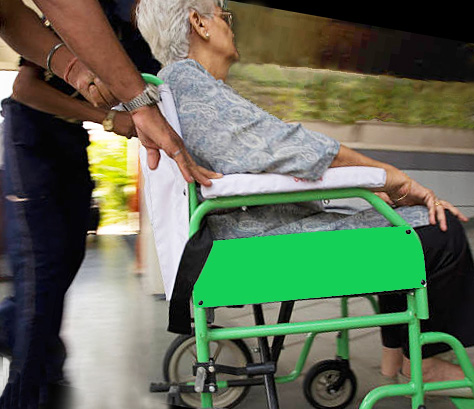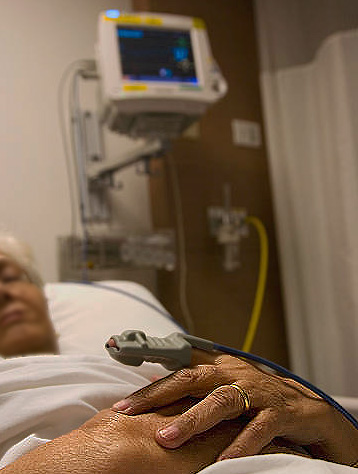Geriatric Emergency Department Accreditation (GEDA)
Read about the IHS Division of the Nursing Service and Alzheimer's Grant Program's continued efforts to expand and support geriatric emergency department (ED) accreditation across Indian Health Service and Tribal facilities. Based on past success, IHS is supporting a new cohort of EDs in their quest for successful geriatric ED accreditation.
In 2022 and 2023, IHS managed an initiative to support nine IHS and Tribal EDs in successful geriatric ED accreditation with generous philanthropic funding. Support included training, technical assistance, and peer-to-peer learning activities.

GEDA accreditation incorporates the 4Ms Framework of Age-Friendly Health Systems . The 4Ms include:
- What Matters – aligning care with outcome goals and care preferences
- Medication – using age-friendly medication
- Mentation – prevent, identify, treat, and manage dementia
- Mobility – moving safely to maintain function
Geriatric Emergency Department Accreditation (GEDA) in IHS and Tribal emergency departments signals our commitment to excellence and elevating the quality of care for our community elders.
Why Geriatric EDs?
The population of American Indian and Alaska Native older adults aged 65 and older is growing faster than the U.S. population. The number of Native people aged 65 and older is expected to triple in the next 30 years, with those 85 years and older growing even faster. As age increases so do the number of ED visits.
- Health disparities: Older adults and American Indian and Alaska Native populations account for a disproportionate number of ED visits, and many ED visits for older adults result in potentially avoidable hospital admissions.
- Health equity: Introducing a geriatric ED reduces the chance of avoidable patient admissions, improves patient satisfaction, reduces ED re-visits, and improves patient outcomes.
Accreditation Success
Seven (7) IHS and two (2) Tribal EDs received Bronze – Level 3 Geriatric ED three-year accreditation. Facilities include:

- The Northern Navajo Medical Center
- San Carlos Apache Healthcare Corporation
- Crow Northern Cheyenne Hospital
- Claremore Indian Hospital
- Gallup Indian Medical Center
- Parker Indian Health Center
- Rosebud Hospital
- Pine Ridge Hospital
- Sage Memorial Hospital
- Fall Prevention
- Medication Management
- Medication Reconciliation
- Depression and Suicide Screening
- Geriatric Trauma Considerations
These facilities join a group of more than 400 GEDA-designated facilities nationwide.
What is a Geriatric ED?
Either a separate space designated for older adults or the integration of best practices for older adults into an existing ED. Geriatric EDs include:
- MD/DO and RN champions and other recognized staff Supplementary education for all staff about older adult ED patients
- Screening for high-risk conditions specific to older adults
- Processes, protocols, or procedures that enhance the care of older adults
- An interdisciplinary team focused on improving the assessment of older adults (e.g., nurses, social workers, pharmacists, physio- and occupational therapists, physician assistants, nurse practitioners, physicians)
About GEDA
The GEDA program is governed by the American College of Emergency Physicians. Accreditation aims to standardize and improve the care of older adults presenting to the emergency department. The accreditation system promotes:
- Enhanced staffing and education
- Geriatric-focused policies and protocols, including transitions of care
- Quality improvement and metrics
- Optimal preparation of the physical environment
Three levels of accreditation with increasing requirements are available. GEDA criteria were established by representatives from the American College of Emergency Physicians, the American Geriatrics Society, the Emergency Nurses Association, and the Society for Academic Emergency Medicine.
For more information or questions, email: Ardith Aspaas, IHS Nurse Consultant


